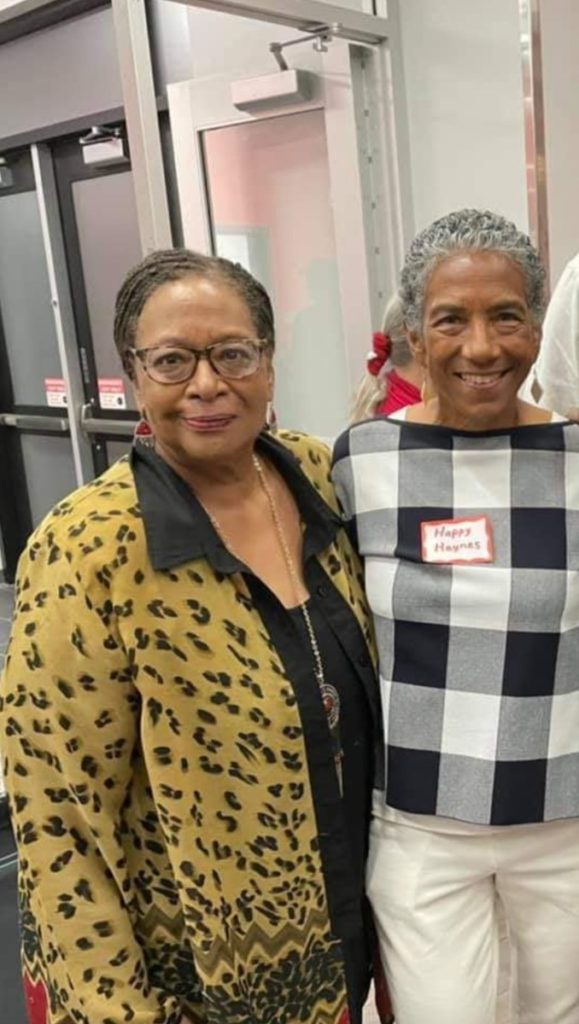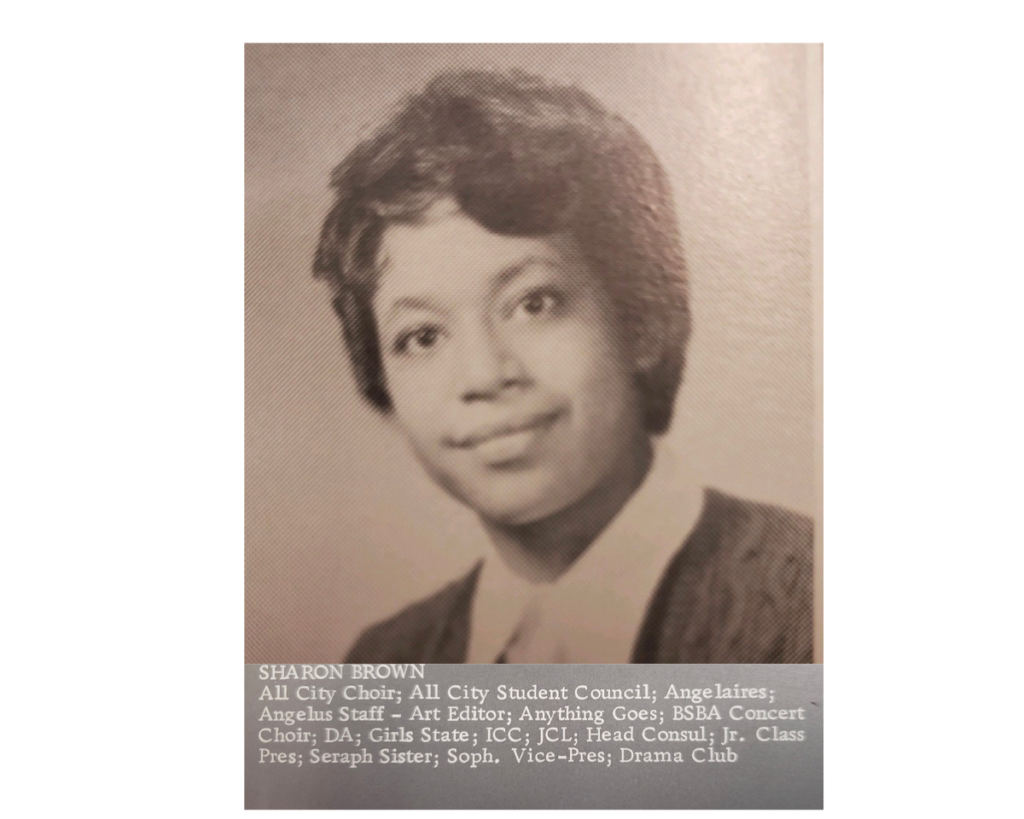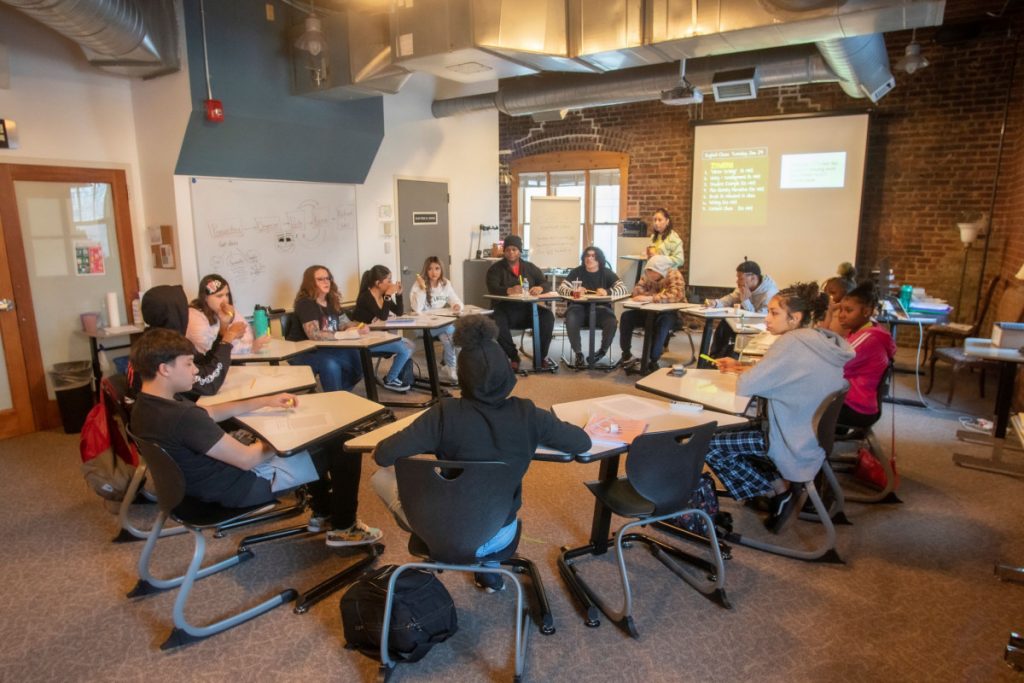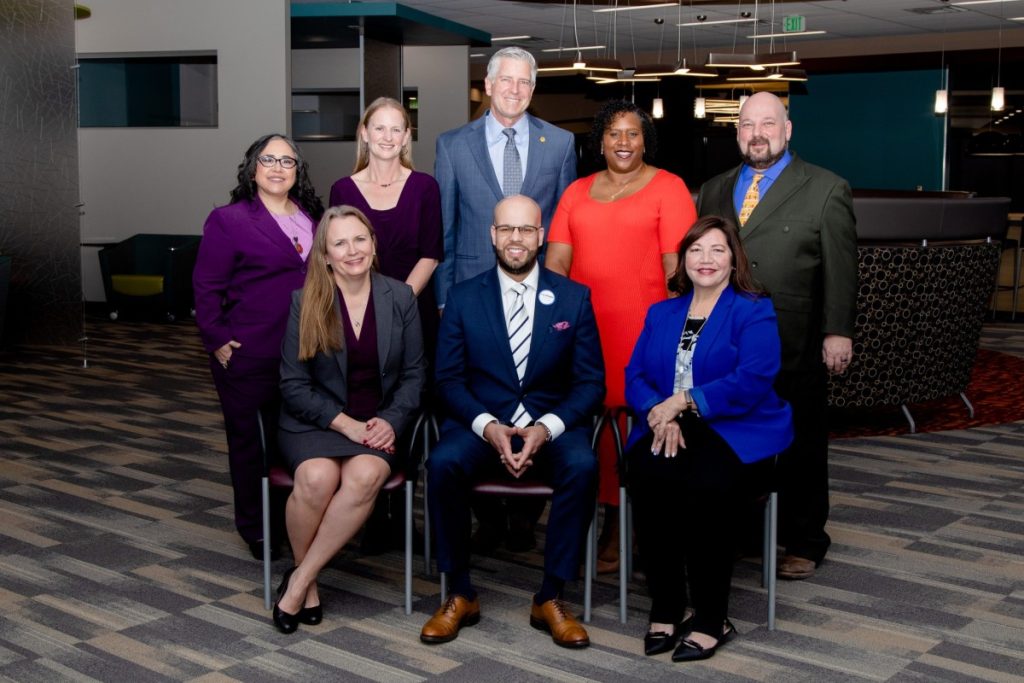This article was written for Boardhawk by Allegra “Happy” Haynes, a former Denver school board and city council member who currently serves as Denver’s Executive Director of Parks and Recreation.
The deep sadness and pain that our community feels over the passing of Dr. Sharon Bailey is accompanied by profound gratitude for her enormous and enduring contributions.
And, for so many of us, our lives will be forever enriched by Sharon’s friendship.
Sharon’s legacy is an inspiration. As an extraordinary leader on the Denver school board, she elevated and transformed the commitment to academic opportunity and excellence for students of color. Sharon’s intellect and passion found full expression in what is known appropriately as the Bailey Report, a highly influential document that gave voice to Black educators and administrators and established critical expectations, infrastructure and recommendations to achieve educational equity for students and teachers of color.

Sharon’s life reflected a lifelong commitment to educational equity and quality education, particularly for African American students.
We both attended East High School and spent much time together. We were among the very few students of color in AP courses and accelerated academic tracks, a circumstance that sadly persists to this day. One of the experiences we shared was our participation in the Black Student Alliance, fighting for and eventually getting the Afro-American history classes that we demanded be added to our course offerings. These struggles gave both of us our start in the policy arena and our advocacy in education.
We were fortunate to have a progressive principal who wasn’t frightened or defensive about a group of students who demonstrated the audacity to present our demands. He understood our feelings about ensuring that our history was respected and told as well, at a time when both ancient and modern history was told through a mostly white, Eurocentric lens. And he was not dissuaded by objections from some of the faculty.
Former State Senator Regis Groff was our Black Student Alliance sponsor and was recruited to teach the Afro-American history course after we successfully persuaded the administration to add the course to the curriculum. What a difference he made for Black students, and all students for that matter, teaching our history that had been so long overlooked.
We were all getting our college acceptance letters and scholarships just as we took off in the spring for a month-long trip to Europe with our AP European history class.
That trip abroad continued to motivate Sharon to fight for justice because these were the kinds of educational experiences that she believed all children should have. Sharon and I were the only two Black students on that trip which underscored the degree of disparity there was in our educational experiences.
I believe that these early educational experiences are what got Sharon started on her remarkable journey for educational equity and justice.
Sharon focused her graduate work on education and that was what continued to be her passion professionally and academically. Sharon was an academic at her core, and she was always teaching. When you were in a meeting with Sharon it was like listening to Professor Bailey. She set the research and the data as the framework for everything she did.
Sharon understood very early that the action and impact is where the policy is being made. Watching Rachel Noel and Omar Blair, where decisions were being made — that had an impact on our lives. There was a long battle over busing before the desegregation court case was settled. The original Noel Resolution passed in 1968. The next election, the school board flipped. That’s when Denver ended up on the court path. During all those years while we were in school, those dynamics were taking shape and we witnessed it up close.
I don’t think anyone ever had to push Sharon to do well academically. She was wired to be excellent and successful and to shoot for the stars, and she did – graduating from Princeton University and earning a PhD from University of Colorado.
Sharon always started from the community’s point of view, the community perspective. All of the work she did with the Bailey Report and the resulting equity work were about empowering the community with the tools they needed to bring about change. She had rich research capabilities but her work was always grounded in community.
Among her most lasting legacies is her work with parents and the Black Parent Advisory Group. She was deeply committed to empowering parents.
The findings of the Bailey Report focused on the lack of intention on the part of the district to embrace equity principles, principles that her report clearly established and continue to be its driving force. And her legacy will live on in the recommendations and strategies of the Bailey Report if paired with the commitment to put them into action.
Implementation has to be grounded in measuring the progress we make compared to those fundamental principles. When Sharon took pen to paper in the Bailey Report, what she saw was not unlike what she had observed in her own early experiences and which she continued to observe throughout her academic career, and her school board career.
Sharon was a good friend and remained so throughout her life. I will miss her dearly.
We can celebrate Sharon’s extraordinary accomplishments, intellect and character. But what’s more important is that we honor Dr. Bailey’s legacy by continuing the work that she envisioned and catalyzed for our Black and Brown students, for all students, and for a more just and equitable community.




